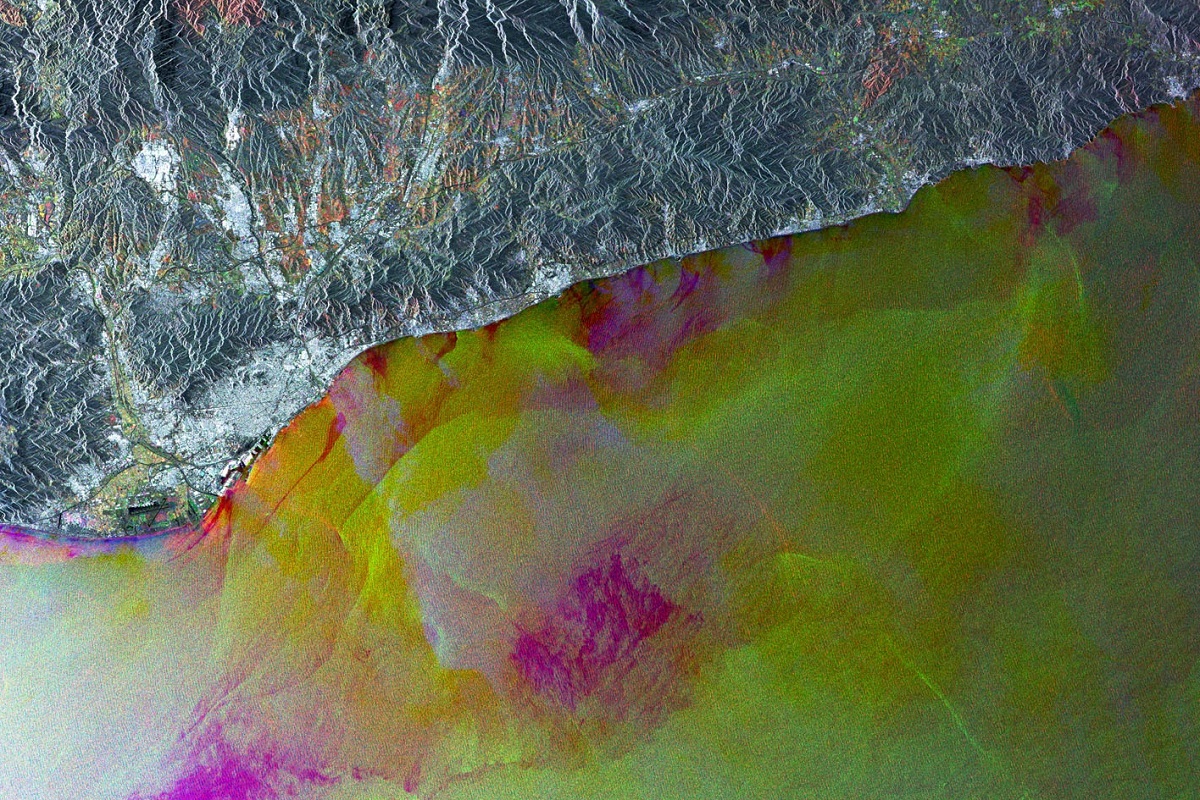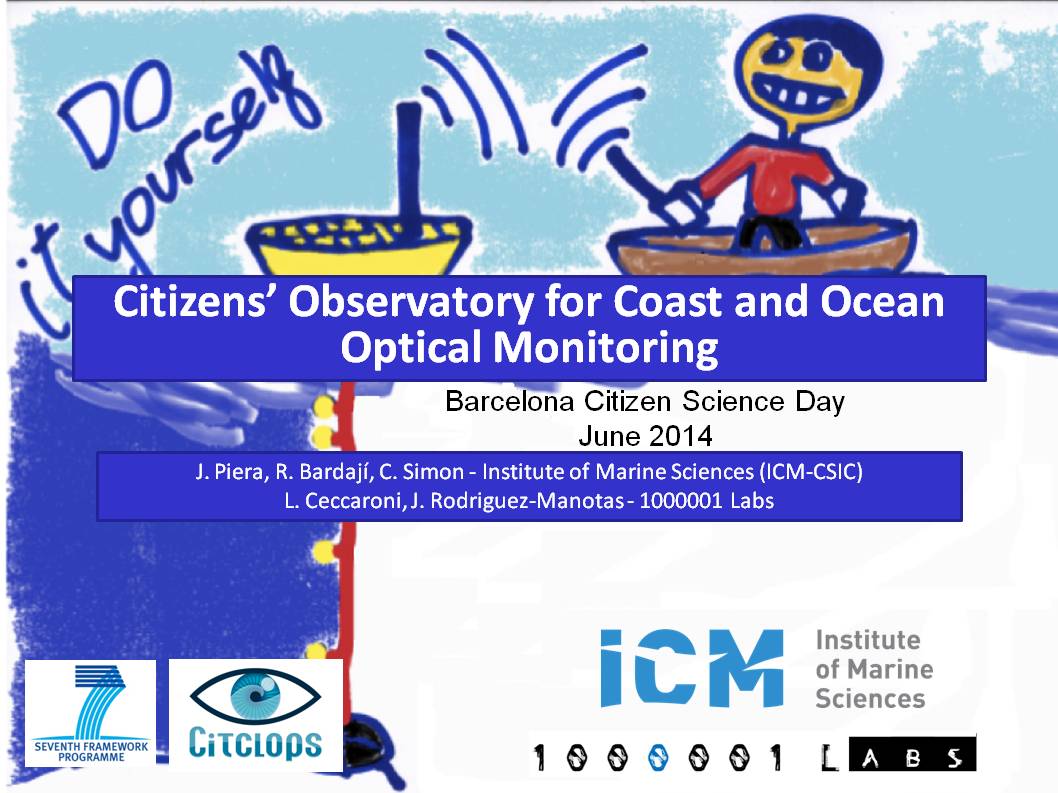2014.06.12. Luigi Ceccaroni talks about ecological status and its measurement in surface marine waters at the 8th GEO European Projects Workshop taking place in Athens, at the Divani Caravel Hotel, on June 12th, 2014.
Measuring simple indicators, such as transparency and color, contributes to determine the ecological status of surface marine waters. These indicators are related to chlorophyll, algal biomass and organic compounds. To determine the ecological status of surface waters, the quantification of the presence of pollutants, such as accumulations of plastic debris, is also necessary. Currently, transparency and color measures are based on optical imaging, the Secchi-disk depth and the Forel-Ule (FU) scale. Measures of accumulations of plastic debris are based on analysis of images of the sea surface.
To improve the assessment of the ecological status of water bodies, the Citclops (Citizens’ Observatory for Coast and Ocean Optical Monitoring) European action (2012-2015) has developed a mobile application that allows citizens to contribute to measuring water bodies’ optical properties via participatory science.
This event, the 8th GEO European Projects Workshop, brings all those interested in and actively contributing to the Global Earth Observation System of Systems (GEOSS) from all over Europe together. Almost 70 talks, structured in 14 plenary and thematic sessions, covers a number of issues of high relevance to the Group on Earth Observations (GEO) and related European earth observation (EO) activities such as, for example, the exploitation of the wealth of GEOSS data and information, the contribution of GEOSS-related projects to the different Societal Benefit Areas (this year with a special focus on Natural Hazards Monitoring and Disaster Management) or the benefits that GEO Global Initiatives can bring to European policy makers and citizens. The first steps taken for the new 10–year Implementation Plan for GEO, Citizen’s contribution to the GEOSS, Horizon 2020 and Copernicus also have an important role in the workshop.

